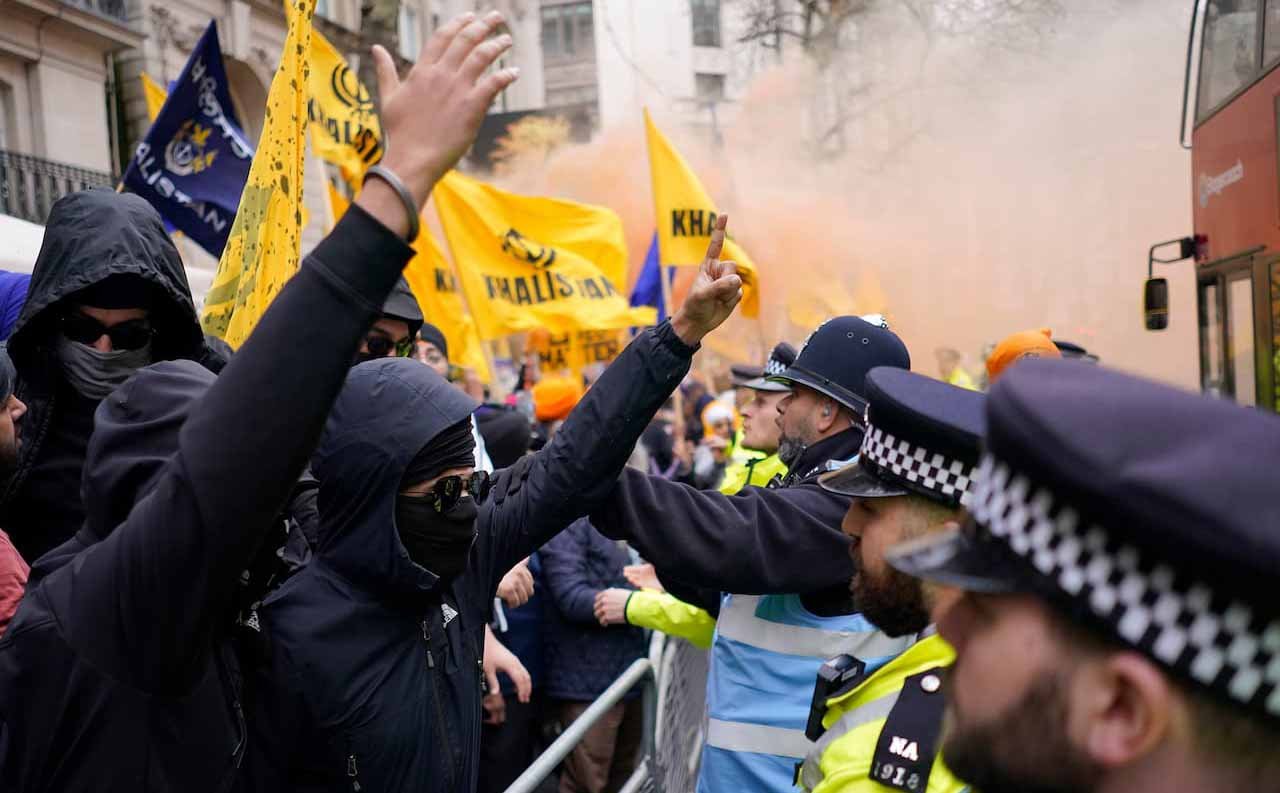
Canada is a hub of Sikh separatists; all the plans are made there and unrest is created on Indian soil. Fortunately, Indian Sikhs have no time to buy into this conflict but the conditioning of Sikhs is always on the agenda of these groups. There are many extremist Khalistani outfits, such as the Khalistan Liberation Force (KLF), the International Sikh Youth Federation (ISYF) and Babbar Khalsa International (BKI). There are many countries that shelter these separatists, including Canada, the US, Australia, the UK, and Greece.
Hardeep Singh Nijjar, the chief of Khalistan Tiger Force (KTF), had joined hands with Pannun in 2019. Gurpatwant Singh Pannun, who lives in the US and has been running a Khalistan Referendum campaign, has been missing for the past few days after his aide, Hardeep Singh Nijjar, was shot dead in Canada on June 18th. Pannun and Nijjar used to work together and had visited Australia, among other countries, to launch the Khalistan Referendum campaign. Gurpatwant Singh Pannun, who would usually take credit for terror-related incidents in India, has been silent about the killings, besides the mysterious death of Avtar Singh Khanda. Pannun even halted his propaganda after Nijjar was shot dead and has not released any audio/video since then. Nijjar was shot as he was leaving the parking lot of the Gurudwara where he served as president in British Columbia. He suffered multiple gunshot wounds and died at the spot.
The World Sikh Organization of Canada alleged the role of Indian intelligence agencies in Hardeep Singh Nijjar’s murder. It asked Canadian intelligence and law enforcement agencies to “fully investigate the assassination of Hardeep Singh Nijjar, including the role of foreign interference, specifically from India”. It is not only Pannun but several other Khalistani exponents and terrorists, based in the UK, US, Canada, Australia, and Pakistan, who have gone into hiding after the spate of deaths.
The NIA has issued lookout notices against dozens of Khalistani radicals, including Arshdeep Singh alias Arsh Dala, Gagandeep Singh, Goldy Brar, Gurpinder Singh, Satveer Singh, Charnjeet Singh, and Ramandeep Singh. Most of them are hiding in Canada. Nearly a week after Nijjar’s slaying, about 200 protesters from Canada’s Sikh community gathered in front of the Indian Consulate in Vancouver to demonstrate. Many of the protesters were convinced that Nijjar’s killing was linked to his calls for an independent Sikh state.
In 2016, Indian media reported that Nijjar was suspected of masterminding a bombing in the Sikh-majority State of Punjab and training terrorists in a small city southeast of Vancouver. Last year, Indian authorities accused Nijjar of involvement in an alleged attack on a Hindu priest in India and announced a reward of about $16,000 for information leading to his arrest. The modern Sikh independence movement dates back to the 1940s but eventually became an armed insurgency that shook the country in the 1970s and 1980s. In 1984, then-Prime Minister Indira Gandhi ordered a raid to capture armed separatists taking refuge in Sikh’s holiest shrine.
The raid killed hundreds of people, and two of Gandhi’s Sikh bodyguards assassinated her shortly after. In response, anti-Sikh riots took place across India, in which members of the minority were dragged out of their homes and killed. The insurgency was eventually suppressed in a crackdown during which thousands of people were killed, but the goal of Sikh independence still has support among some in northern India and in the Sikh diaspora.
More recently, the Modi government has cracked down on both non-Hindu rights movements and dissidents. Sikh diaspora activism has been a source of tension between India and Canada for years. Canada has the largest population of Sikhs outside India, and India has repeatedly accused it of tolerating “terrorists and extremists”. At present, in India, there is no Khalistan movement, nor will there be one in the future. Most Sikhs are patriotic, as 20% of them are in the Indian Army. This Khalistan movement was created by a few radical Sikh extremists on foreign land and they are still continuing to do so but the reality is that, they will never get a separate Khalistan. The extremists will come and go but they will not be able to get an inch of separate land in the name of Khalistan.
It’s high time these Sikh separatists utilized their energy in some constructive work that will benefit the entire humanity, this is the ideal way of life that a Sikh is supposed to live. The Langar practice (distribution of free food in the community kitchen of Gurudwra) is a living example of that tradition. Moreover, when millions of Sikhs settle outside Punjab, most of them out of India, what are they going to achieve when their community is jeopardized?

